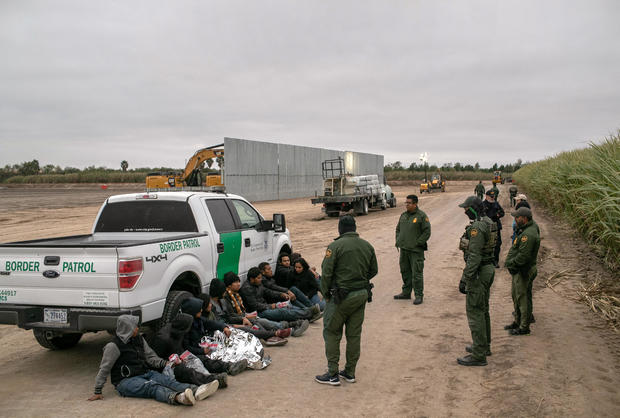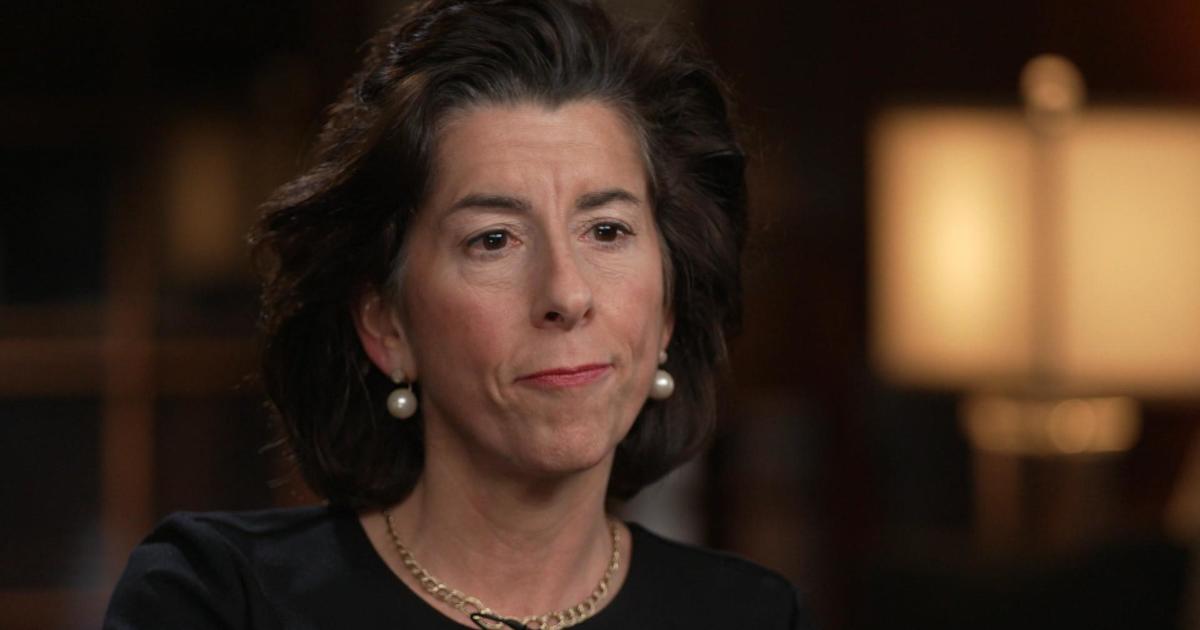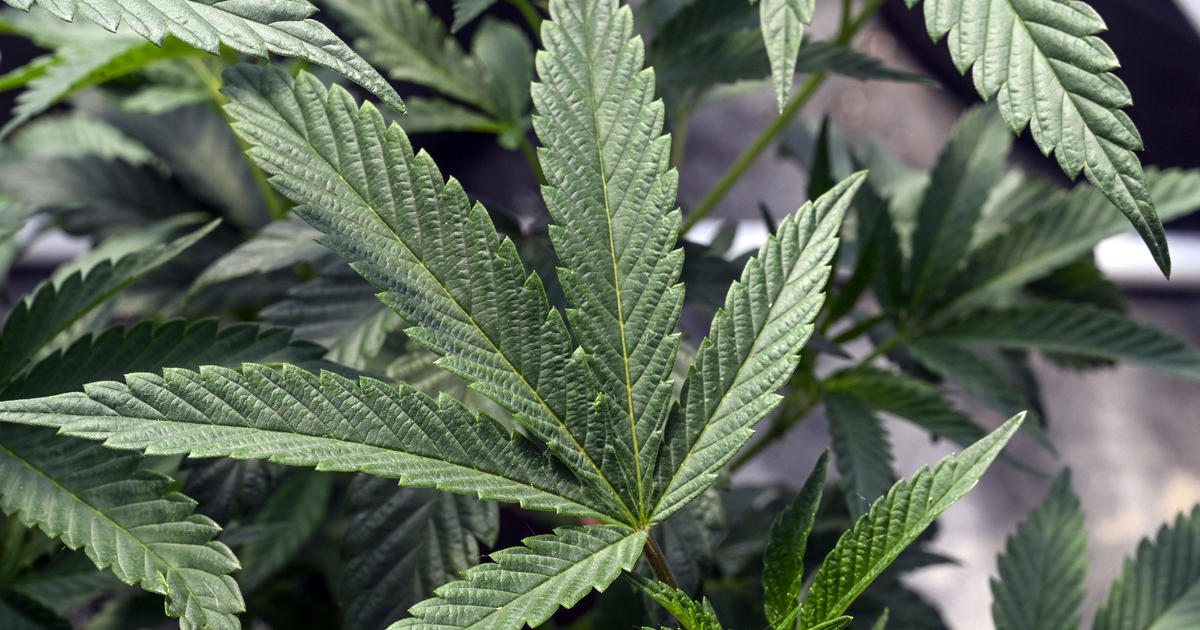U.S. collecting DNA samples from some migrants — including teens — in first stage of program
Washington — The Trump administration began implementing a pilot program Monday to collect DNA samples from certain migrants and immigrants in U.S. immigration custody, including teenagers and green card holders. It's the first stage of a controversial and sweeping plan.
Border Patrol officers in the Detroit sector of the border with Canada and Customs and Border Protection (CBP) personnel at the Eagle Pass, Texas port of entry along the U.S.-Mexico frontier have been instructed to collect DNA from certain migrants. The samples are from cheek swabs. The biometric information would be used to create profiles in a massive national criminal database run by the FBI.
The move is the first phase of a five-part, three year Department of Homeland Security initiative to obtain DNA profiles from virtually all migrants in U.S. custody, whether or not they've committed crimes.
The administration's efforts have elicited withering criticism from advocates who believe the government shouldn't obtain such sensitive information from people who aren't linked to serious crimes.
"This is going to be a massive intrusion into individual privacy and it seems to us like a way of just collecting a DNA databank of people who are in immigration custody — which we view as really problematic," Stephen Kang, an immigration attorney at the American Civil Liberties Union (ACLU), told CBS News.
Citing the DNA Fingerprint Act of 2005, DHS officials said in a privacy impact assessment that those who refuse to consent to the new DNA collection efforts could be referred for criminal prosecution.
CBP said the "limited" programs will run for 90 days. Border Patrol officers in the Detroit sector will obtain DNA information from migrants between the ages of 14 and 79, while officials at the Eagle Pass port of entry will do the same for adults younger than 79.
According to the privacy impact assessment, during the first phase of the pilot program, officials will collect DNA from migrants with criminal charges, as well as U.S. citizens and green card holders referred for prosecution. Some migrants who cross America's borders without authorization are referred to the Justice Department for criminal prosecution.
During the next four phases, CBP will gradually expand the number of officers, border sectors and ports of entry implementing the policy. After the fifth stage, which officials would consider "full implementation" of the program, the administration could dramatically expand the scope of those subject to DNA collection if the Justice Department and the DHS agree on that course.
The privacy impact assessment says officials could start obtaining DNA information of migrants with no criminal records who are detained for administrative purposes, such as showing up in court, as well as people released by officials and those the government seeks to deport due to immigration violations.
The policy has a few exceptions, including those with some form of "mental impairment" and those being transported for medical treatment.
The privacy impact assessment also indicates that certain immigrants in Immigration and Customs Enforcement (ICE) custody will be subject to DNA collection. Since many migrants sent to ICE facilities are transferred from CBP custody, the agency wouldn't need to collect DNA samples from those who've already been subject to the new policy. ICE would obtain DNA profiles of green card holders "arrested for or charged with a criminal violation."
An ICE spokesperson didn't respond to questions about the facilities where the agency will implement the pilot program.
The administration officially announced this effort in October, unveiling a proposed Justice Department rule that would effectively scrap limits the Obama administration put in place in 2010 on those in U.S. immigration custody who could be subjected to DNA collection. In a memorandum that year, then-Homeland Security Secretary Janet Napolitano said only those detained on criminal charges or processed for removal could have their DNA collected.
In the privacy impact assessment dated January 3, Homeland Security officials said the biometric information collected through the program could be used for law enforcement purposes and to generate investigative leads. But they conceded it's "unlikely" that U.S. immigration authorities will be able to use the data for "public safety or investigative purposes" before the migrants are transferred to different agencies, released into the interior of the country or deported.
The officials also recognized in the assessment several risks that have been raised by advocates, including the possibility that migrants won't know they have to consent to have their DNA collected or that some detainees, particularly children, could be unaware that the information will be sent to the FBI "in perpetuity." These risks, the official added, could be "partially" mitigated by posting notices in ICE facilities and by CBP officers providing "verbal notice."
Another concern is the "risk of over-collection of information, particularly from young children, who could not have committed any crimes for which to match against." This risk, the officials conceded, "is unmitigated."
Privacy advocates have long denounced information gathering initiatives by the government, which they see as intrusive. But Kang, the ACLU attorney, said this effort targets much more vulnerable people who, for the most part, lack the relative protections of U.S citizenship or legal status. Language barriers also make them more susceptible to government coercion, Kang added, citing the fact that many migrants from indigenous communities in countries like Guatemala don't speak English or Spanish.
"You're keeping people in custody and then saying to them, 'We need to collect DNA sampling from you.' And they're in no position to refuse to consent to that because they are in a custodial situation," Kang said.





